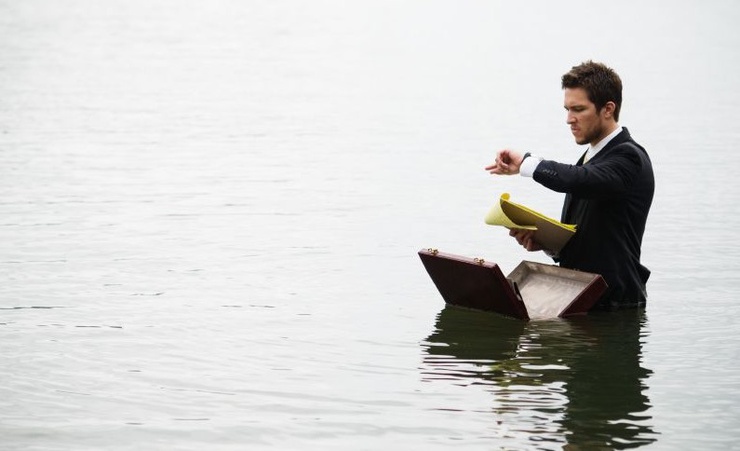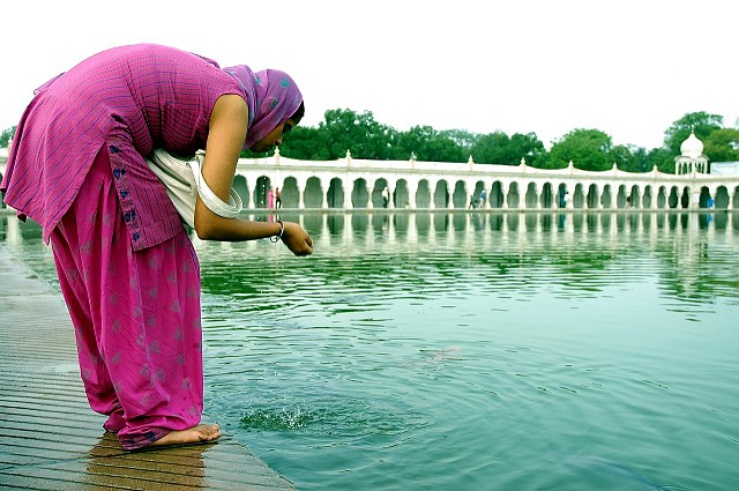
Riccardo Petrella: ‘Water is a human right’
Published on
Translation by:
Mary MaistrelloThe social scientist, advisor to the European commission and water activist on why the wars over blue gold have already begun
Petrella is a utopian. ‘Me? Yes, that’s what I keep hearing in European offices. But what do you think is preventing public finance from taking over water management? Does it not cover military expenses? And aren’t we aware that the war over water has already started, and will get more serious in the future?’
Riccardo Petrella is in Verona, northern Italy, when we first contact him by phone at the end of August. In a lively voice, he starts the conversation without a question being asked; he is, after all, used to speaking in public, explaining and elaborating on the reasons why the ‘wordsmith’ as he calls himself, has become one of the most fervent defenders on the right to water. He is an experienced professor; he taught economic globalisation at the Catholic University of Lovanio, Belgium, lectured at the Free University of Brussels (in the Dutch sector), and has taken part in the creation of the University of Common Good. The latter is a project born in 2001-2 following the Works of the Group of Lisbon, which follows the principle that awareness is a heritage of humanity. Petrella discusses his ideas with clarity and not without some irony – and that’s why you don’t tire of listening to his arguments.
The coca–cola-isation of water
 We know that there is no life without water. But water is not an inexhaustible resource. The media are preparing us for a crisis, the consequent rise in the price of the new petrol - ‘blue gold’. ‘The current dominating tendency in the EU is to entrust the supply of drinking water to the private sector, allocating a resource to the open market, and therefore transforming it into merchandise.’ Why? The most important factor for Petrella will be to always maintain a high water availability, because demand is destined to increase as a result of an increase in population as well as economic growth. And to this, one must add the pollution that will affect water in the future.
We know that there is no life without water. But water is not an inexhaustible resource. The media are preparing us for a crisis, the consequent rise in the price of the new petrol - ‘blue gold’. ‘The current dominating tendency in the EU is to entrust the supply of drinking water to the private sector, allocating a resource to the open market, and therefore transforming it into merchandise.’ Why? The most important factor for Petrella will be to always maintain a high water availability, because demand is destined to increase as a result of an increase in population as well as economic growth. And to this, one must add the pollution that will affect water in the future.
In order to maintain a high availability, there is nothing better than resorting to expensive technological solutions, such as the desalinisation of sea water, the construction of large dams and purification. At this point, according to Petrella, the question you have to pose is: who will pay for the technology? ‘Private capital, obviously. A very real hub of international investment funds was created in 2000 which specialises in water. They gather public and private funds - currently up to thirty to forty billion dollars worth – to then invest them in large groups such as Suez, Veolia and so on. These are world leaders in environmental services.’ Managing water is also attracting the interest of companies like Nestlé, Danone and Coca-Cola. ‘130 billion bottles of Coca-Cola are produced every year, which means a huge use of water. So now Coca-Cola has every reason to buy land with water sources, with the excuse that it needs to monitor the quality of the water that it uses.’
European water politics: free-for-all?

Petrella is the founder and president of IERPE, the European Institute of Research on the Politics of Water, and is also a member of the International Committee for the World Contract on Water. He wrote the Water Manifesto, in which he proposes shared management of the resource based on the recourse to public finance and to active citizen participation. In fact, according to the academic, the only way that water will reach those who do not have access to it – currently running to one and a half billion people – is for water to become a common property.
Currently running to one and a half billion people do not have access to water
‘In the last few years we have pushed the European parliament to declare water as a human right, which therefore should not be regulated by market values. In March 2006 the European parliament sanctioned the right to water to humanity, but the limits of its action were evident a few days later at the Fourth World Water Forum in Mexico City.’ On this occasion, the European commission was instructed to pass the parliamentary resolution. But at the end of the forum, the inter-ministerial conference completely ignored the resolution, asserting that water is an economic good. ‘Do you know what the commission’s answer to European parliamentary members who asked for an explanation was? That its members had the mandate from the council of ministers of the union - the majority of whom are in favour of the nationalisation of water!’
Private lobbies, public lobbies

The wool should not be pulled over our eyes by the differing views of European institutions. ‘The parliamentarian view is essentially that water is a right. But increasingly, rights generate costs which public finance cannot afford. It is then necessary to resort to managerial solutions – in other words , the privatisation of hydro services.’ After all, European institutions are influenced in their choices by international water companies, as well as by individual countries. For example, France has approved the Water Framework Directive of 2000 in which, reading the small print, the EU was open to water privatisation. ‘Nine of the first ten water enterprises in the world are European, and the most powerful are French. What’s more, former president Jacques Chirac’s personal political adviser between 2000 and 2007, Jérôme Monod, was president of the Suez-Lyonnaise des Eaux multinational. Not surprisingly, the French school is the most influential in Europe.’
Translated from Riccardo Petrella: «L'acqua, un bene comune a rischio»



